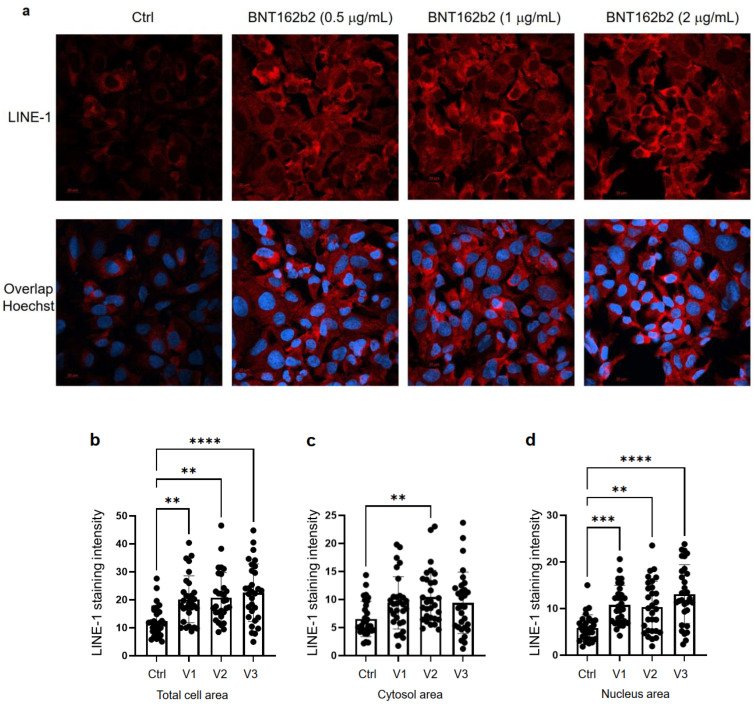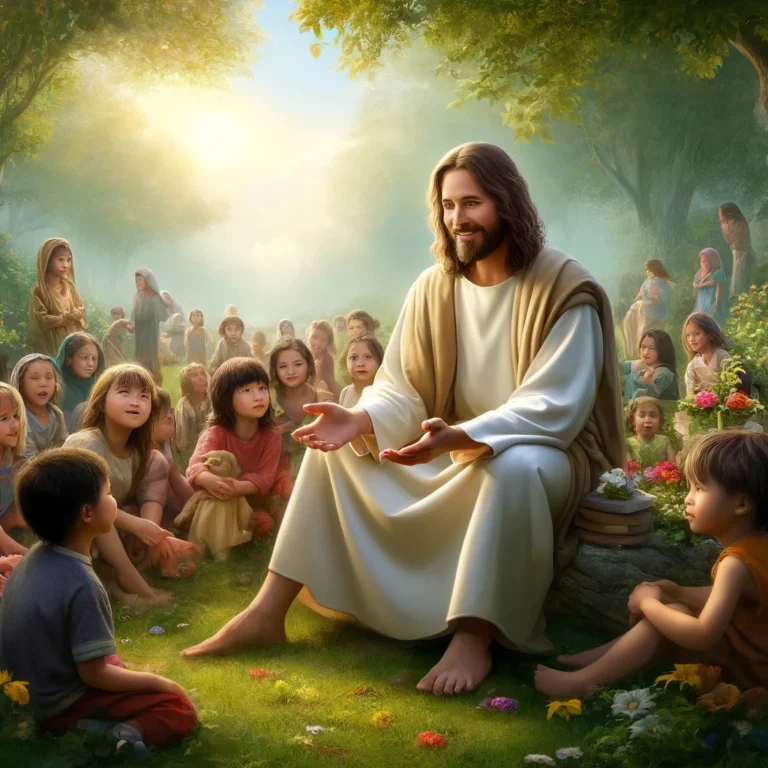We are living in a very dangerous period for those who do not believe, and the distractions of life have left many blind along the way.
Knowing how to identify the period of history we are living in is crucial for all the decisions in our lives.
Recently, I was reading a scientific article on the Pubmed website, one of the world’s leading sites for medical scientific articles. In this article, the author published their studies related to the vaccine that recently frightened the entire world.

Intracellular Reverse Transcription of Pfizer BioNTech COVID-19 mRNA Vaccine BNT162b2 In Vitro in Human Liver Cell Line
But why should I be aware of everything happening around me and at the same time believe in God, living in peace and gratitude, knowing that we will be raptured soon before the worst begins to happen?
The answer is quite simple. When we understand the circumstances, our decisions can be more accurate.
In this context, I wish to start with you today a brief study about the 7 biblical dispensations, so that we can identify the history of humanity, the period of time we are living in, and the future events according to the word of God.
The seven dispensations are part of a biblical interpretation system called dispensationalism. Blessed be the God and Father of our Lord Jesus Christ, who has blessed us with every spiritual blessing in the heavenly places in Christ, just as He chose us in Him before the foundation of the world, that we would be holy and blameless before Him. In love, He predestined us to adoption as sons through Jesus Christ to Himself, according to the kind intention of His will, to the praise of the glory of His grace, which He freely bestowed on us in the Beloved. In Him, we have redemption through His blood, the forgiveness of our trespasses, according to the riches of His grace which He lavished on us. In all wisdom and insight, He made known to us the mystery of His will, according to His kind intention which He purposed in Him, with a view to an administration suitable to the fullness of the times, that is, the summing up of all things in Christ, things in the heavens and things on the earth. In Him, we also have obtained an inheritance, having been predestined according to His purpose who works all things after the counsel of His will, to the end that we who were the first to hope in Christ would be to the praise of His glory. In Him, you also, after listening to the message of truth, the gospel of your salvation—having also believed, you were sealed in Him with the Holy Spirit of promise, who is given as a pledge of our inheritance, with a view to the redemption of God’s own possession, to the praise of His glory. Ephesians 1:3-23.
DISPENSATION – οικονομια oikonomia – the management of a household or of household affairs 1a) specifically, the management, oversight, administration of other’s property 1b) the office of a manager or overseer, stewardship 1c) administration, dispensation
For this reason, I, Paul, the prisoner of Christ Jesus for the sake of you Gentiles— if indeed you have heard about the dispensation of God’s grace that was given to me for you. Ephesians 3:1-3.
Generic dispensationalism divides human history into seven distinct dispensations: the dispensation of innocence, the dispensation of conscience, the dispensation of human government, the dispensation of promise, the dispensation of law, the dispensation of grace, and the millennial kingdom of Christ.
It is essential to note that these seven dispensations are a created framework to understand what the Bible revealed about God’s purposes for humanity.
Dispensationalism is not a biblical concept and cannot be found explicitly in the Bible. It is a theological system for organizing and understanding God’s work, but it is not Scripture itself.
The word “dispensation” means “a system of order, government, or organization of a nation, community, etc., especially as existing at a specific time.”
Looking through the Bible, we can identify seven distinct dispensations, or “ways of doing things,” which were ordered and designated by God. Each dispensation serves a purpose in the overall story of history. Below is a brief description of each dispensation.
The Dispensation of Innocence – This dispensation covers the time from the creation of man to the fall of man (Genesis 1:28-30 and 2:15-17). During this period, all of God’s creatures lived in harmony with each other and with God, and the world was without sin or death. Man was given the responsibility to procreate, govern the earth and animals, and tend to the garden. He was given one command to obey: not to eat from the tree of the knowledge of good and evil. Eve and Adam disobeyed this rule and were expelled from the garden as a consequence, ending the dispensation of innocence.
The Dispensation of Conscience – The expulsion from the garden marked the beginning of the dispensation of conscience, a time when man was left to govern himself by his own will and conscience, both corrupted by sin. It was a disaster and ended in catastrophe—the worldwide flood (Genesis 3:8—8:22). During this dispensation, man became so wicked that “every inclination of the thoughts of his heart was only evil continually,” and God was “grieved in His heart” (Genesis 6:5-6). It was also during this time that fallen angels married human women and produced a giant and wicked offspring called the Nephilim (Genesis 6:1-4). God chose to wipe out humanity through a flood and start anew with Noah and his family (Genesis 6:11-18).
The Dispensation of Human Government – The dispensation of human government began shortly after the flood. This dispensation lasted for 427 years, from the time of the Flood until the Tower of Babel incident (Genesis 10:35; 11:1-9). Man utterly failed, and the judgment of the Flood marks the end of the Second Dispensation and the beginning of the Third. The declaration of the covenant with Noah subjects humanity to a test: “Man is essentially responsible for the governance of the world according to the will of God.” This responsibility rested on Jews and Gentiles until Israel’s failure regarding the Covenant of Palestine, Deuteronomy 28-30:1-10, resulted in the judgment of captivity when “the times of the Gentiles” began, Luke 21:24. The governance of the world definitively passed to the Gentiles, Daniel 2:36-45; Acts 15:14-17, and Israel, like the Gentiles, has governed for itself and not for God.
God made promises and gave commands to Noah and his family. God promised not to curse the earth again and never to flood it. He commanded Noah and his sons to repopulate the world and spread out over the earth, and He authorized them to use animals as food. God also established the law of capital punishment (Genesis 8:1-9:7). Noah’s descendants failed to “fill the earth” as ordered and instead worked together to build the Tower of Babel (Genesis 11:1-9). In response, God confused their languages, creating different nations and cultures that later spread to different areas. This marked the beginning of human government.
The Dispensation of Promise – The dispensation of human government lasted until the calling of Abraham. Abraham’s calling, the lives of the patriarchs, and the Jewish people’s captivity in Egypt are all part of the dispensation of promise. This was the time when Abraham’s descendants waited for the promise given to Abraham: that God would make his descendants a great nation and give them their own land (Genesis 12:1-7). This dispensation ended with the Exodus of the Jews from Egypt. Once they left Egypt, they officially became a nation led by God on the way to the Promised Land.
The Dispensation of Law – The dispensation of the law lasted for nearly 1,500 years, starting with the Exodus and ending with the crucifixion and resurrection of Jesus Christ. The giving of the Ten Commandments and the Mosaic Law, found in Exodus 19-23, outlined the standard of perfection that God demanded from His people and included instructions on worship and sacrifices in the temple. This was the period of priests, prophets, and kings, both good and bad. The people of Yahweh repeatedly broke His commandments and turned to other gods. It is crucial to note that strictly following the commandments was never as important to God as mercy and faithfulness (Hosea 6:6). The law was given to show the people that they needed to depend on God and trust Him for salvation, rather than relying on themselves, their own goodness, or other gods for salvation. He never expected perfection – if He did, He would not have instituted the sacrificial system as a way for man to say “yes, I have sinned; here is a symbol of my need for forgiveness and atonement.” The blood of bulls and goats cannot take away sin – they are a symbol, pointing to the One whose blood can take away sin (Hebrews 9:11-14; Hebrews 10:3-10).
The Dispensation of Grace – The dispensation of grace began with the resurrection of Jesus Christ and continues until today. It is the new covenant in the blood of Christ (Luke 22:20). It is also called the “church age” or the “age of grace,” and scholars believe that the entire dispensation – over 2,000 years – occurs between the 69th and 70th weeks of Daniel’s prophecy in Daniel 9:24. Atonement was provided on the cross, once and for all, for all who believe: the children of Abraham are all those who have faith, including the Gentiles (non-Jews) (Hebrews 10:10, 14; Romans 5:1; Romans 3:29-30; Galatians 3:7, 29). During this dispensation, we also have a Comforter with us, the Holy Spirit of God, who indwells believers (John 14:16-26). Dispensationalists believe that the Church Age will end with the Rapture of the Church (1 Thessalonians 4:13-18; Revelation 3:10), and then the tribulation, the seven years during which those dwelling on the earth will experience God’s judgment, will begin (Daniel 12:1-4; Matthew 24:21-27). The exact timing of the Rapture is a subject of great debate, but dispensationalists believe it will occur at the beginning of the seven years. We know that some people will be saved during the tribulation (Revelation 7:14-17) and that it will end with the Battle of Armageddon, when Jesus Christ will return and defeat Satan and all those who follow him in battle (Revelation 19:11—20:3).
The Millennial Kingdom of Christ The Millennial Kingdom begins with the defeat of Satan (Revelation 20:1-3) and ushers in 1,000 years of peace when Christ reigns on earth (Revelation 20:4). This fulfills many prophecies declaring that Christ will return and be King. After the 1,000 years, Satan will be released. People will once again follow him in a battle against God, and they will be defeated once more (Revelation 20:7-10). There will be a final judgment of all people, great and small (Revelation 20:11-15), the old earth and heaven will be destroyed by fire, Satan will be cast into the lake of fire, and this will usher in the Eternal Kingdom, the new heaven, and the new earth (Revelation 21 and 22). “He will wipe away every tear from their eyes, and death shall be no more, neither shall there be mourning, nor crying, nor pain anymore, for the former things have passed away” (Revelation 21:4).
Continue in next sermon…



















